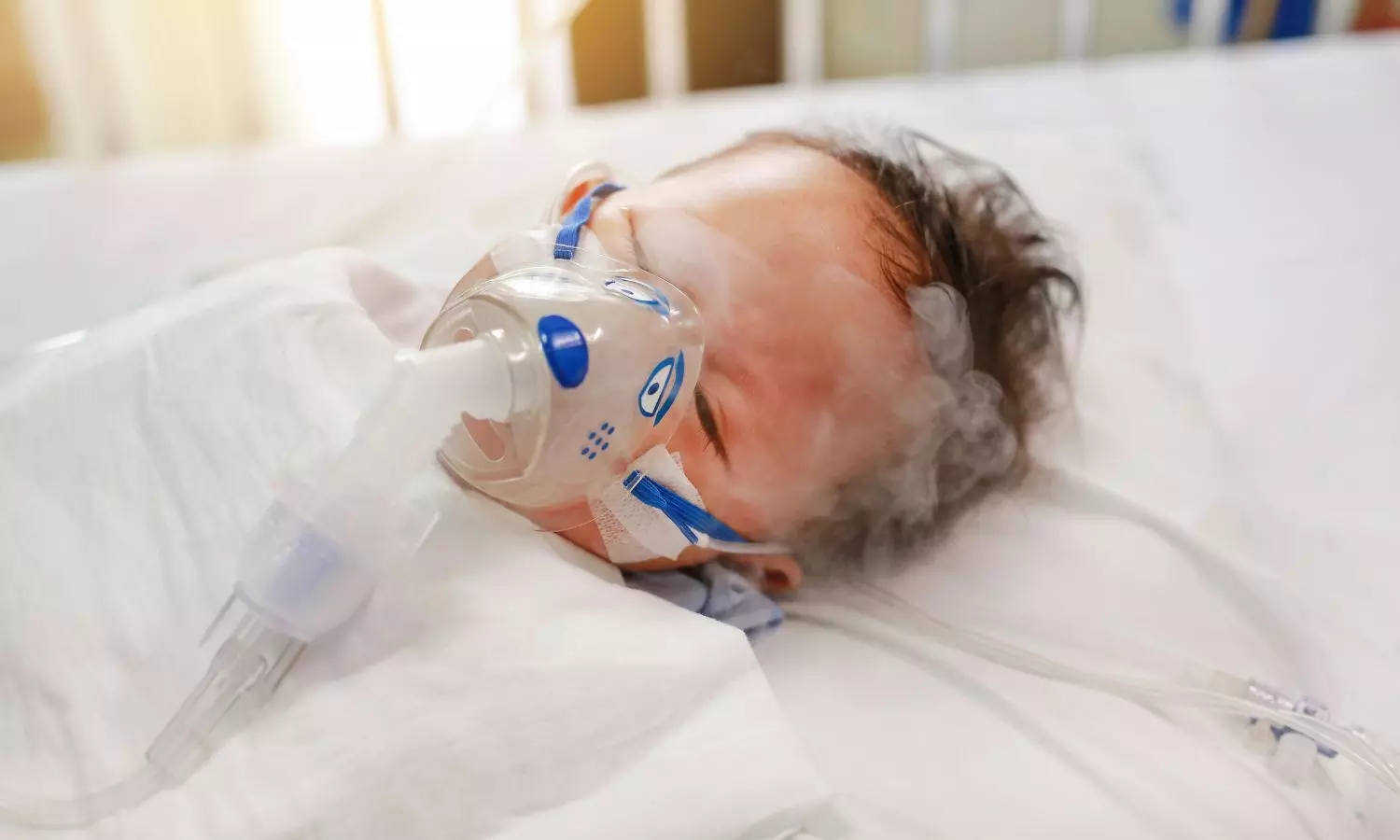- Home
- Medical news & Guidelines
- Anesthesiology
- Cardiology and CTVS
- Critical Care
- Dentistry
- Dermatology
- Diabetes and Endocrinology
- ENT
- Gastroenterology
- Medicine
- Nephrology
- Neurology
- Obstretics-Gynaecology
- Oncology
- Ophthalmology
- Orthopaedics
- Pediatrics-Neonatology
- Psychiatry
- Pulmonology
- Radiology
- Surgery
- Urology
- Laboratory Medicine
- Diet
- Nursing
- Paramedical
- Physiotherapy
- Health news
- AYUSH
- State News
- Andaman and Nicobar Islands
- Andhra Pradesh
- Arunachal Pradesh
- Assam
- Bihar
- Chandigarh
- Chattisgarh
- Dadra and Nagar Haveli
- Daman and Diu
- Delhi
- Goa
- Gujarat
- Haryana
- Himachal Pradesh
- Jammu & Kashmir
- Jharkhand
- Karnataka
- Kerala
- Ladakh
- Lakshadweep
- Madhya Pradesh
- Maharashtra
- Manipur
- Meghalaya
- Mizoram
- Nagaland
- Odisha
- Puducherry
- Punjab
- Rajasthan
- Sikkim
- Tamil Nadu
- Telangana
- Tripura
- Uttar Pradesh
- Uttrakhand
- West Bengal
- Medical Education
- Industry
Intranasal Palivizumab Fails to Prevent RSV Infection in Preterm Babies

A recent double-blind, randomized placebo-controlled trial found that daily intranasal palivizumab, a mucosal monoclonal antibody (mAb) did not prevent Respiratory Syncytial Virus (RSV) infection in late preterm infants. The findings were published in eClinicalMedicine of Lancet.
A total of 268 infants were enrolled from January 14, 2019 to January 28, 2021, with half receiving intranasal palivizumab and the other half a placebo once daily during the RSV season. The trial was halted for futility following a planned interim analysis.
Adverse events were observed to be similar in both groups, with 22 (16.4%) in the palivizumab arm and 26 (19.4%) in the placebo arm. But, 168 infants were excluded from efficacy analyses due to the absence of RSV circulation during the SARS-CoV-2 pandemic.
The primary outcome showed no significant difference between groups (38.3% in the palivizumab arm versus 23.4% in the placebo arm) in regard to RSV infection. Also, the findings underscore the importance of timely interim analyses in mucosal mAb clinical development.
The outcomes of this study questions the efficacy of intranasal palivizumab for preventing RSV infection in late preterm infants. The results carry broader implications for the clinical development of mucosal mAbs by emphasizing the importance of interim analyses and the need for further research to comprehend the half-life of mucosal antibody. This supports clinicians to reevaluate strategies in the pursuit of effective mucosal antibody-based interventions against respiratory pathogens.
Reference:
Mazur, N. I., Löwensteyn, Y. N., Terstappen, J., Leusen, J., Schobben, F., Cianci, D., van de Ven, P. M., Nierkens, S., Bont, L. J., Nibbelke, E. E., Buiteman, B., Rave, N., Putten, M. V., Smit-Kleinlugtenbeld, E. A., de Lege-Korstanje, J. P., Peetsold, M. G., Hulsmann, A., van Gool, S., Snepvangers, Y., … Schuurman, R. (2023). Daily intranasal palivizumab to prevent respiratory syncytial virus infection in healthy preterm infants: a phase 1/2b randomized placebo-controlled trial. In eClinicalMedicine (Vol. 66, p. 102324). Elsevier BV. https://doi.org/10.1016/j.eclinm.2023.102324
Neuroscience Masters graduate
Jacinthlyn Sylvia, a Neuroscience Master's graduate from Chennai has worked extensively in deciphering the neurobiology of cognition and motor control in aging. She also has spread-out exposure to Neurosurgery from her Bachelor’s. She is currently involved in active Neuro-Oncology research. She is an upcoming neuroscientist with a fiery passion for writing. Her news cover at Medical Dialogues feature recent discoveries and updates from the healthcare and biomedical research fields. She can be reached at editorial@medicaldialogues.in



